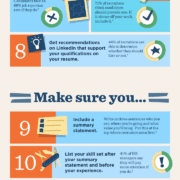Multitasking Is Killing Your Productivity
Multitasking was once touted as the productivity habit of champions. Answering phone calls while typing memos while scheduling meetings while Tweeting, “Liking” and posting may feel like you’re accomplishing many things all at once. You can do all your busy work along with the important tasks by balancing several devices and platforms at the same time. Multitasking seems like a natural evolution in response to the Information Age. Sure sounds like we’ve adapted to our busy lives.
Except that when you look at the actual results that multi-tasking produces, the picture starts to look pretty different.
In fact, there are studies that not only challenge the idea that multi-tasking is productive but suggest that it can be downright damaging not only to your productivity but to your neurons.
What Are the Negative Effects of Multitasking?
1. Multitasking impairs IQ
A University of London study examined their subjects’ IQ levels while they were multitasking and recorded noticeable drops in IQ. Not only did multitasking not increase mental sharpness, it plummeted it to the level of someone who had skipped an entire night of sleep or who had smoked marijuana. Men’s results were even worse than women’s, with multi-tasking reducing their IQ to that of your average 8-year-old.
2. Multitasking reduces productivity
The myth is that multitasking increases your output. How could it not? If you’re doing five things at once instead of one thing at a time, doesn’t that add up to higher output? The reality, according to research at Stanford University, is that people who focus on one task at a time perform that task better, faster and have higher levels of memory retention than those who are flooded with several streams of information all at once. Try the Pomodoro technique to become more focused.
[Tweet “ppl who focus on 1 task, perform that task better and faster than those who multitask”]
3. Multitasking increases stress
Does anyone really need to be convinced of the negative effects of stress? From heart complications to diminished cognition, sleep problems and hormone fluctuations, nobody wants to increase stress in their life. Unfortunately, multi-tasking increases the release of cortisol (stress hormone) forcing your body to respond to increased stress levels. Constantly switching back and forth between tasks can cause a sense of panic as the brain struggles to adjust to new information.
4. Multitasking can cause long-term damage
The University of Sussex also published a study on multi-tasking suggesting that the habit is linked to reduced function in brain activity in areas responsible for cognition and emotional control. Habits such as using mobile phones, tablets, and computers simultaneously with television and print media were examined in the study. Long-term practice of these habits can create unique cellular changes and produce cortical “re-mapping” which eventually erode emotional and cognitive function.
Are You a Multitasking Addict? What Can You Do to Stop Multitasking?
To some, this may seem like a hopeless battle. Neuroscientist Dr. Daniel J. Levitin’s book The Organized Mind: Thinking Straight in the Age of Information Overload, despairs of the fact that “We take in five times more information every day as we did just 25 years ago- the equivalent of reading 175 newspapers from cover to cover.” How do we avoid multi-tasking when it seems our devices, jobs, and lifestyles demand it of us?
Here are some tips to switch to uni-tasking:
1. Take a cue from the French
The new law in France allows employees to ignore work-related emails during off hours. While it’s probably not possible for you to pack up and move to France, if 24-7 access is a part of your job, you may want to re-think your career options. Look for a place that supports the concept of work-life balance. Also, you might want to understand why you should limit your email and social media.
2. Practice mindfulness techniques
It will be a challenge to exchange your multi-tasking style for one that focuses on one thing at a time. Mindfulness techniques can help re-train your brain and enhance your concentration. If you think it doesn’t work, consider the fact that Google incorporates mindfulness exercises in their employee activities. And those guys are pretty smart. Recently, Target and General Mills followed suit too. Here are some simple mindfulness exercises to get you started.
3. Turn off your phone while working
For the multi-tasking addict, this is probably the biggest challenge. The constant beeping, buzzing and dinging may be music to your ears, but it’s killing your productivity. Test it out for a week by doing all your work without access to your phone. See if your day runs smoother and you accomplish more. If this is not possible, then find new ways to unplug and get some down time.
4. Learn to make a schedule
If you’re used to doing a million things at once, chances are you haven’t made a schedule for yourself before. Sit down at the beginning of each day and map out the tasks you need to complete that day, including your three must do’s. Then knock them out one at a time by scheduling them on your calendar.
In this time when constant streams of information are flowing towards us all day long, the key to handling it isn’t multitasking, but instead understanding and planning what needs to get done and focusing on completing them one by one.
Have you tried to stop multitasking? If so, what was the biggest obstacle?











Trackbacks & Pingbacks
[…] ⬅ Multitasking Is Killing Your… […]
Comments are closed.